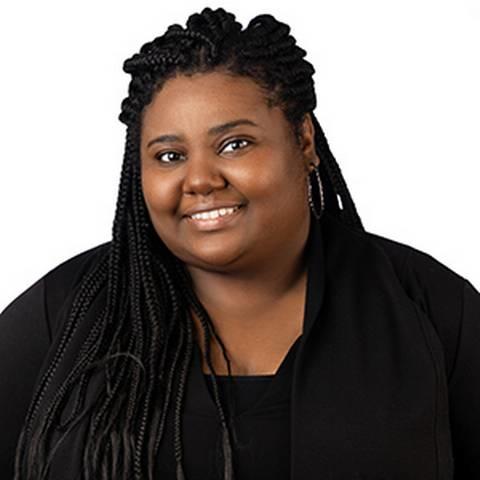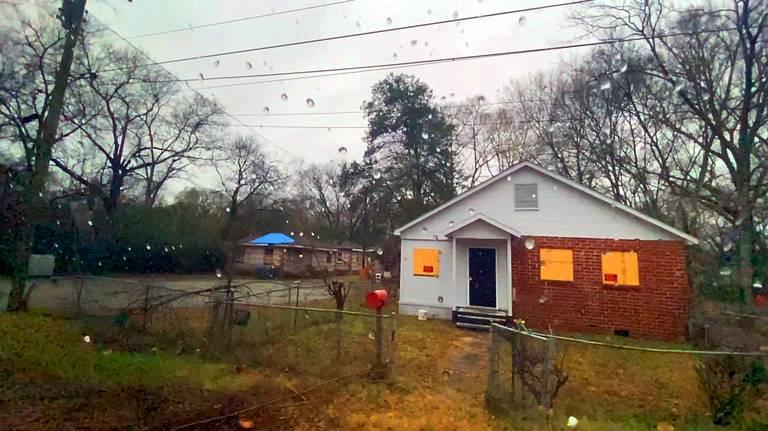
Section Branding
Header Content
‘You’re powerless when you’re low-income.’ Group evaluates poverty in South Columbus
Primary Content

Many Black residents in Columbus are the descendants of sharecroppers, mused Ronzell Buckner.
A longtime business owner, he’s lived here his entire life. He remembers the time before integration when Black residents in South Columbus owned their homes and businesses.
They didn’t have fancy carpet. Their floors were concrete.
They had fans, not air conditioning.
They didn’t have much, but what they did have was their own. And they took pride in it.
Despite the good the Civil Rights Movement brought his community, Buckner saw his neighborhood in South Columbus receive less investment in economic development and Black-owned businesses afterwards.
Today, about 20% of people in Muscogee County live in poverty with the most impoverished areas centered in South Columbus, according to a report by the Young Gamechangers, a leadership development program that brought young professionals from Columbus and across Georgia to examine the city’s biggest challenges.
One of those challenges was how to effectively address income disparity in South Columbus and increase economic mobility. After almost a year of work, the Young Gamechangers proposed three initiatives to the city to tackle this issue.
One of the Young Gamechangers who worked on the initiatives for South Columbus, Ashley Nealy, was excited to return to Columbus after growing up in the city.
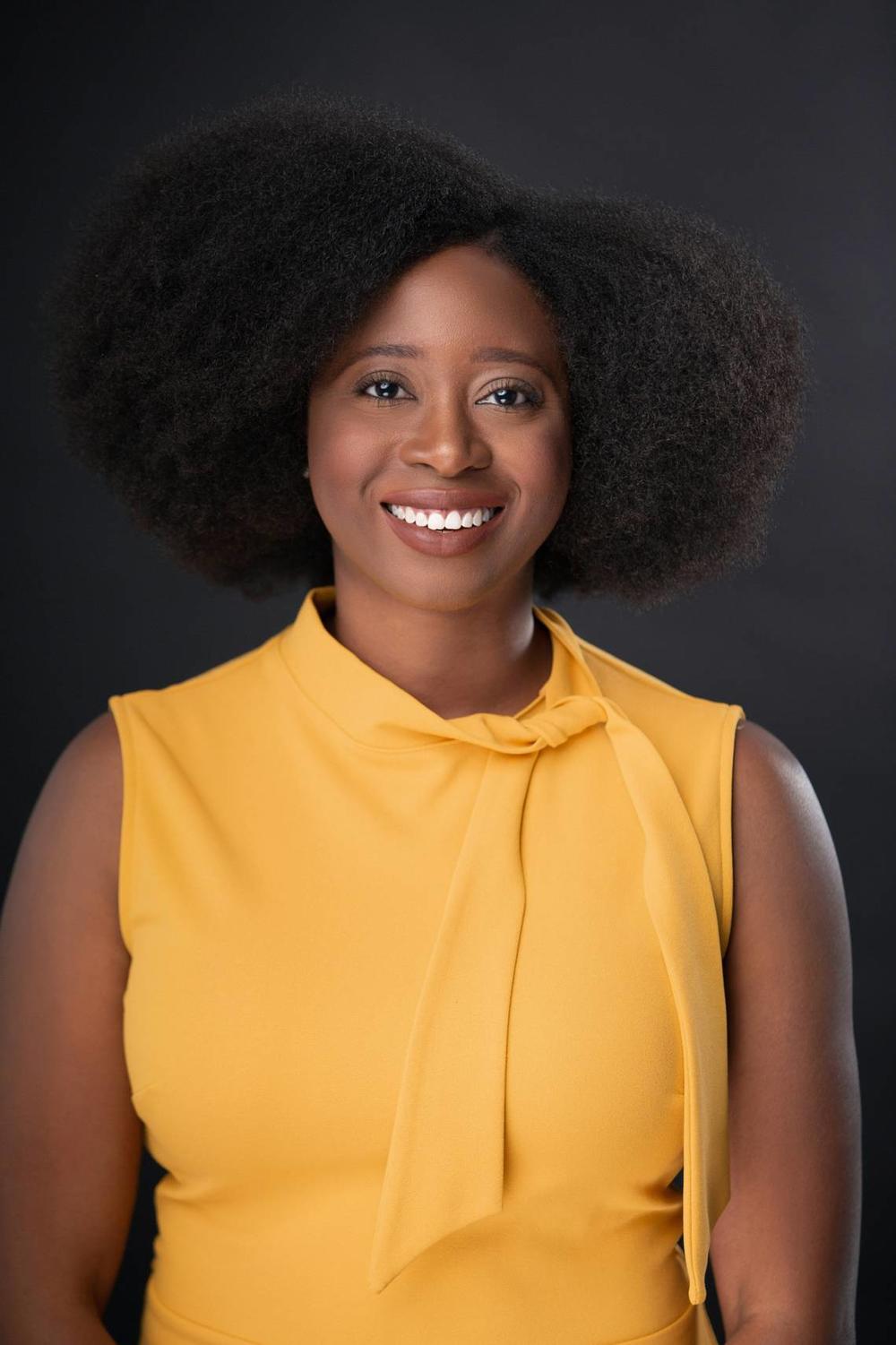
“We did a lot of research to try to find evidence-based programs to pitch to help with South Columbus,” Nealy said.
'My neighbors became my friends'
When considering economic disparity in South Columbus, there are certain truths people have to accept, Robert Scott, director of the community reinvestment department, told the Ledger-Enquirer.
Historic redlining and segregation led to the economic conditions seen in Columbus today, he said.
Columbus and its surrounding counties were named in a list of the most segregated cities in America in a 2019 report by 24/7 Wall St.
More than 90% of residents in South Columbus are African American, according to a 2021 study by the Columbus Community Reinvestment Department.
The poverty rate for predominantly Black neighborhoods is more than four times higher than the poverty rate in predominantly white neighborhoods, reads the Young Gamechangers’ report.
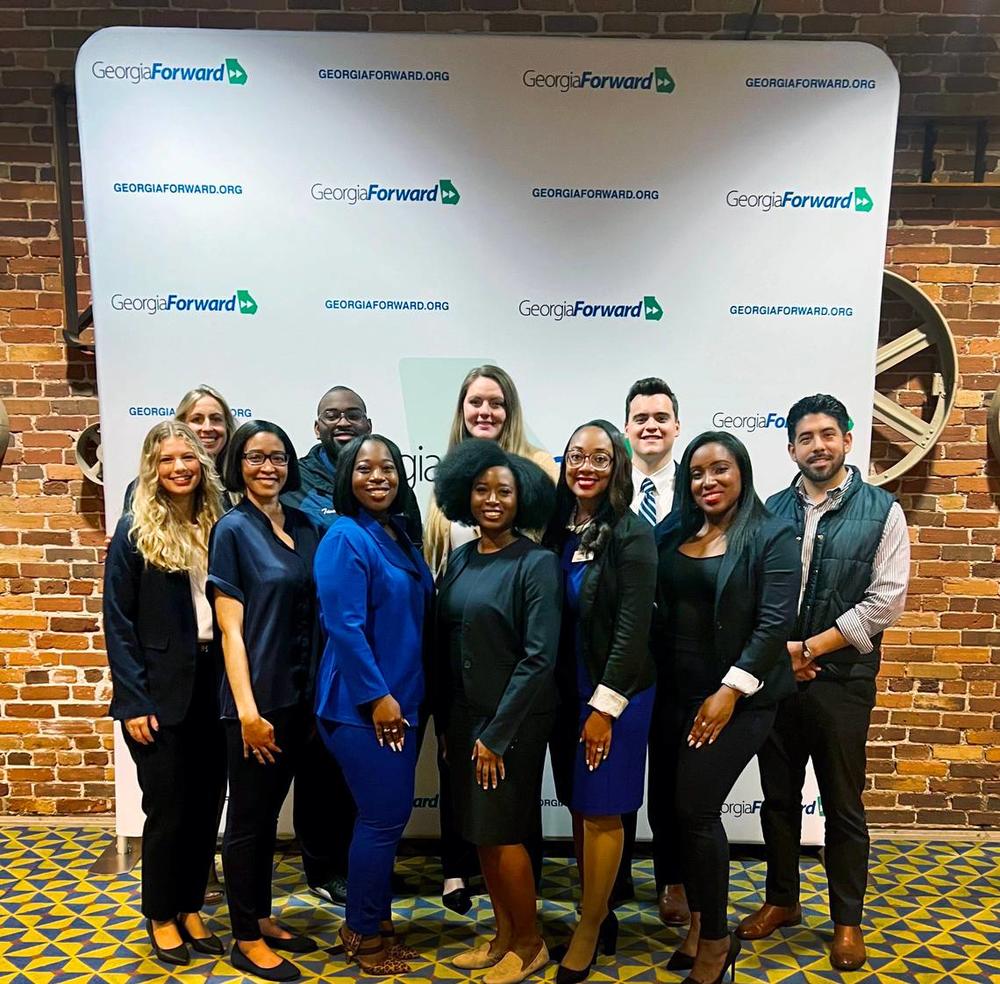
Nearly three-quarters of people who live in South Columbus have low or moderate incomes, according to the report by the Community Reinvestment Department.
Residents in impoverished areas need affordable housing and income support for individuals who fall within the benefits gap, the Young Gamechangers reported. These communities also face barriers to employment and education that include:
-
Access to affordable childcare
-
Access to technology and the internet
-
Reliable public transportation
Other concerns included neighborhood beautification, quality public spaces and better infrastructure to attract investment and create jobs.
A few weeks ago, Buckner helped organize a community meeting at Studio 54, a hair salon in his neighborhood. The meeting followed a spate of gun violence and expressed concerns about blights in the area.
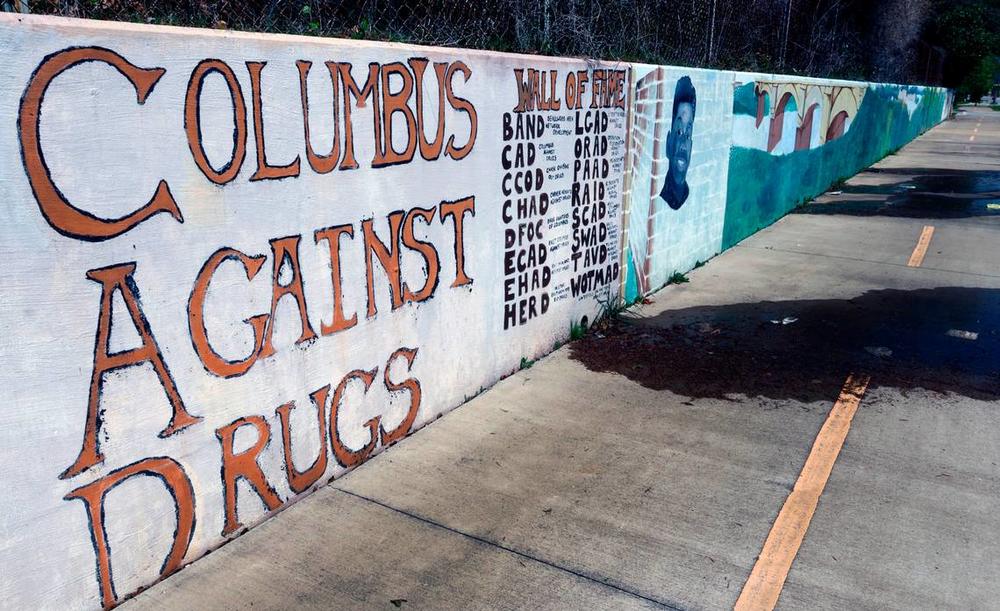
The goal was to learn more about what the city was doing to address ongoing problems in the community and provide education to residents about building codes and resources.
Hundreds of Buckner’s neighbors attended.
“When they came, they were angry because they felt the city wasn’t doing their job,” Buckner said. “But when they left they felt better because they knew then that you got a part to play.
The sense of community Buckner describes echoes the sentiments of Federico Veguilla, owner of La Garita, a Puerto Rican restaurant near Spencer High School on Fort Benning Road.
Veguilla moved to Columbus in 2011, and felt welcomed and accepted by the community.
“People might have their thoughts about the southside,” Veguilla said. “But there’s a lot of good people. When I moved here, automatically, my neighbors became my friends.”
'Cyber Soul'
The first initiative outlined in the Young Gamechangers’ report is "Cyber Soul," which aims to increase access to broadband and expand educational pathways and literacy.
During the pandemic, many students in the region faced barriers in attending online classes because they didn’t have access to the internet, Nealy said.
“Or they had access to the internet,” she said, “but not the fastest internet. So, it kind of left them behind on their work.”
Students might have had to go to a fire station or need a hotspot to connect.
The first step to addressing the need is to attain the Broadband Ready designation through the Georgia Department of Community Affairs, the report said, which would help reduce barriers for infrastructure investment.
South Columbus should also leverage access to affordable internet through the Affordable Connectivity Program, a federal program that provides a discount of up to $30 per month towards internet access for eligible households.
The Young Gamechangers also suggested incorporating a digital literacy and web safety program going beyond basic computer skills into the Muscogee County School System and creating workshops and other resources for community members of all ages.
This would empower adults to engage in virtual job fairs and utilize online job boards, the report said, which would grant them access to better employment.
“You could go to a place before, ask for a job and they’d give you a paper application for you to fill out,” Veguilla said. “But now everything’s digital, and not everyone knows how to get on the computer. Not everybody has access to a computer.”
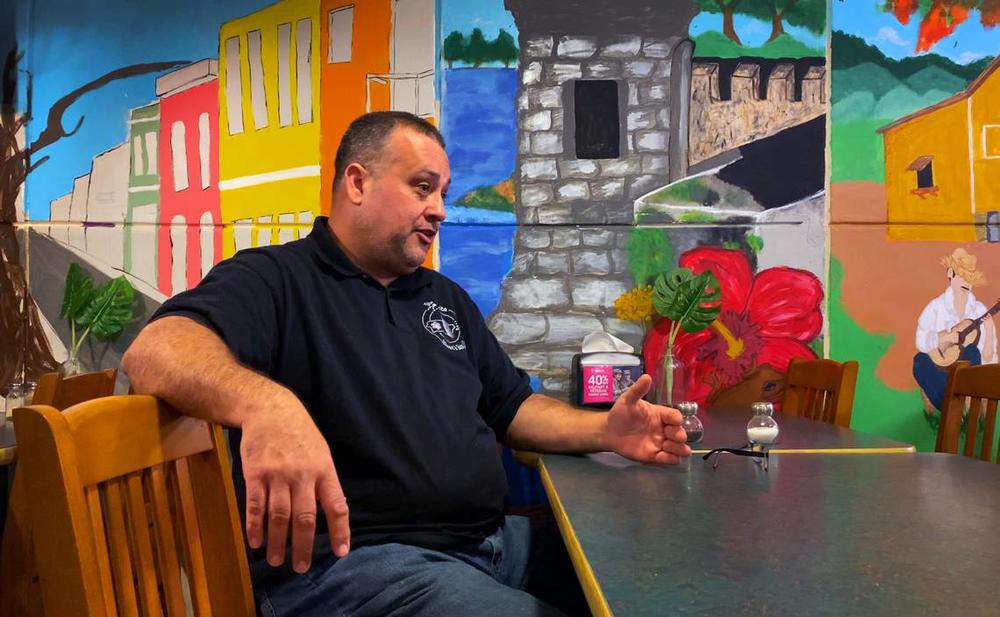
Buckner is supportive of ensuring people of all ages should have access to workshops to increase digital literacy. He envisioned a program that will allow older family members to learn alongside their children.
“They can go to this place with these kids,” Buckner said. “And they can learn. And I don’t feel like they would be intimidated.”
'House of Soul'
The Young Gamechangers focused their next initiative on neighborhood rejuvenation with the goal of increasing property values, reducing crime, mitigating blights and demonstrating pride and care in the community.
“If we’re able to improve the area, make it look better, then people of all socioeconomic backgrounds will want to move there,” Nealy said.
Retail companies, especially, want to invest in areas that look pretty, she said. Nice neighborhoods, clean streets and sidewalks will help attract those businesses.
The program would begin by redesigning the city’s building inspections and code enforcement website. Currently the site is complex with legal jargon that makes it challenging for average citizens to find and understand the information they’re looking for, the report said.
This will help individuals understand what the most common citations are and avoid fines, according to the report.
Next, educational resources for homebuyers should expand beyond the initial purchase to include maintenance and upkeep schedules, budgeting and basic repairs. This would require more staff who can host quarterly seminars and issue “blight warnings” to residents with code violations. This would help address issues before a fine is administered.
The Young Gamechangers also proposed using Community Development Block Grant (CDBG) funding to collaborate with NeighborWorks to create a zero-interest revolving loan program for South Columbus residents for property repairs.
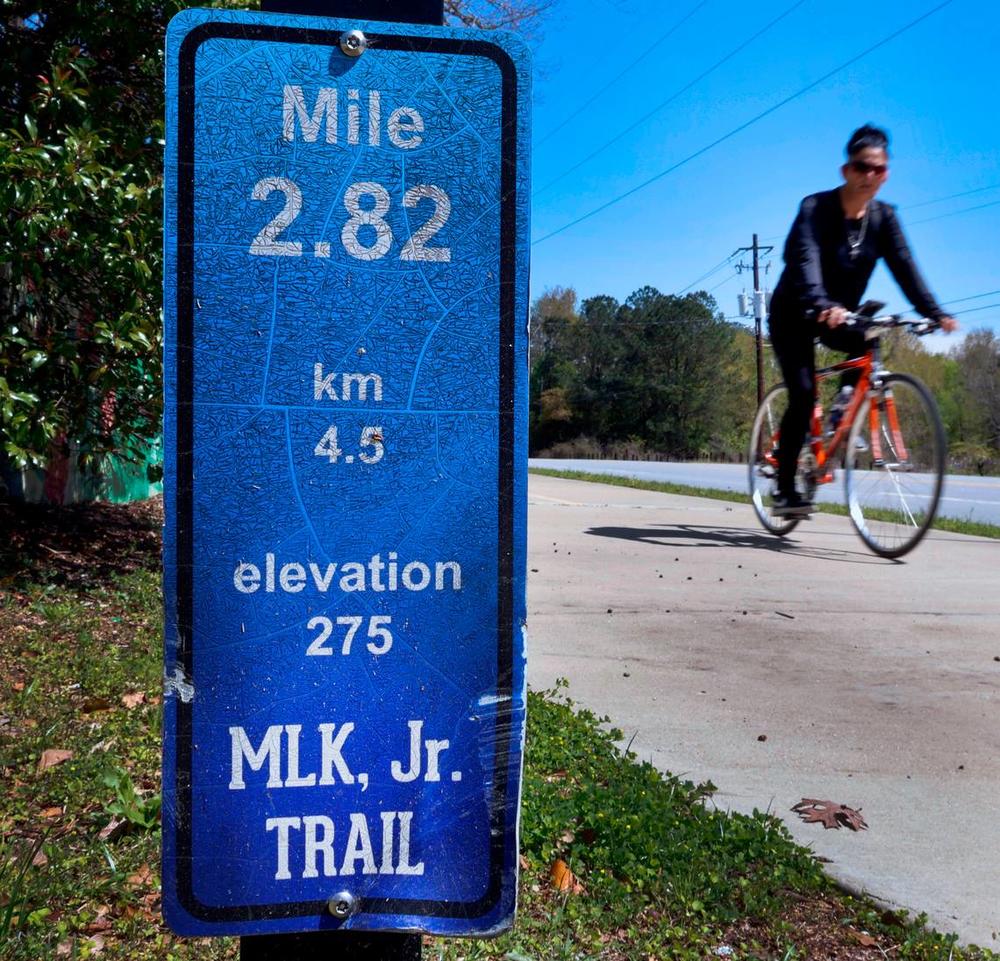
A Blight Removal Task Force could help address vacant, abandoned and deteriorated properties, the report said. And the final arm of this initiative would address homelessness by creating a Homeless Navigation Center in South Columbus to provide basic needs and resources.
Veguilla recently had a problem with his property that he needed assistance from the city, he said, but struggled to find someone who could help address the issue.
Making this type of information more readily available would have helped, he said.
“The more information that’s out there for us the better,” Veguilla said. “And numbers that we can call. A contact that will fight for us, so we can be heard.”
'Soul Support'
The last initiative outlined in the Young Gamechangers’ report, called "Soul Support," recommends providing direct cash assistance and a workforce development program.
Every direct cash assistance recipient would be integrated into the Neighborhood Navigator program that would connect them to existing community workforce development avenues aligned with each client’s goals.
This initiative would also provide an additional subsidy to address common barriers, like childcare and reliable transportation, while clients pursue education and employment opportunities.
Over 30 guaranteed basic income pilot programs in the United States showed favorable outcomes, according to the Young Gamechangers report. Most expenditures went towards retail sales and services followed by food and groceries.
“It seems like a scary idea to give people cash,” Nealy said. “But we actually have data as to where people spend this money.”
Buckner and Veguilla were both supportive of this idea, but with caveats that include ensuring recipients receive education and resources on how to manage their money.
“I think it would help,” Buckner said. “But I think it should be monitored.”
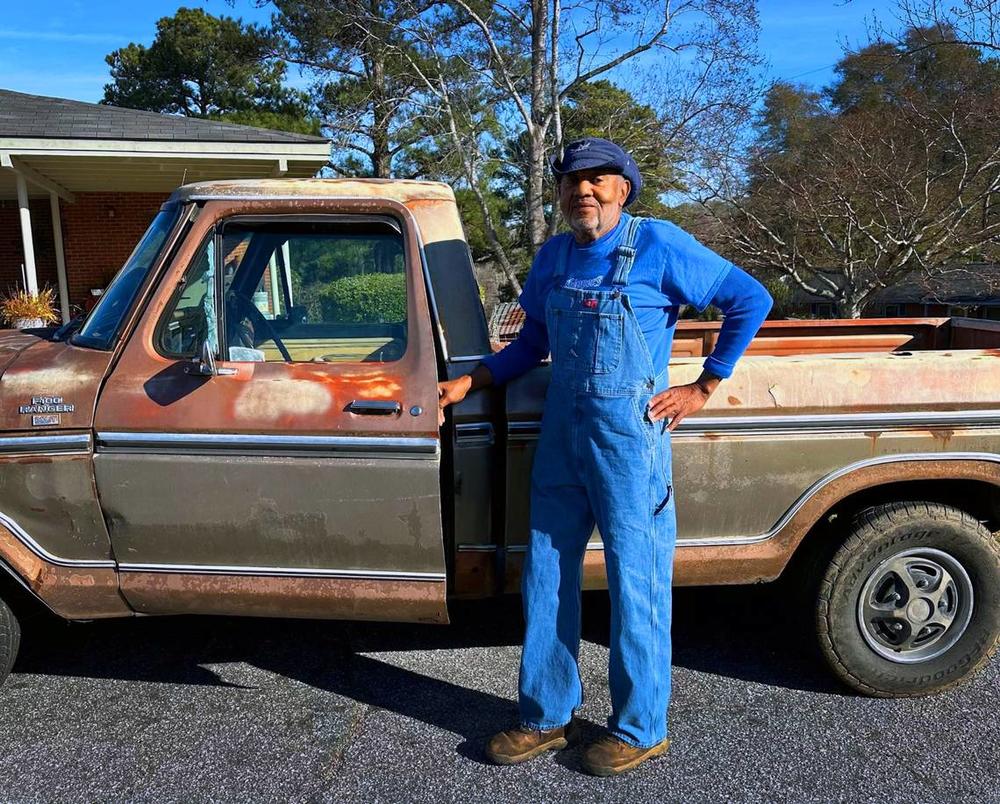
Buckner founded the community development organization Turn Around Columbus in 2005, which created the urban farm Victory Garden & Farm. His program helps provide scholarship opportunities for participating students, he said, but those benefits come with stipulations on where the money goes.
He would like to see a program like what the Young Gamechangers suggested be similarly monitored.
Despite the problems facing South Columbus, Buckner and Veguilla remain optimistic about the future of the community.
Columbus officials are expected to begin vetting the initiatives proposed by the Young Gamechangers this year, Mayor Skip Henderson told the Ledger-Enquirer. Some of the initiatives could be put in place quicker and easier than other, he said.
The Community Reinvestment Department continues to work on issues highlighted by the Young Gamechangers and more, Scott said, including partnering with NeighborWorks and the Housing Authority for projects investing $2.3 million into affordable housing.
“You’re powerless when you’re low-income in a lot of situations because you’re at the whim of somebody else,” Scott said. “Choices are made for you as opposed to you making the choices.”
This story comes to GPB through a reporting partnership with the Ledger-Enquirer.
